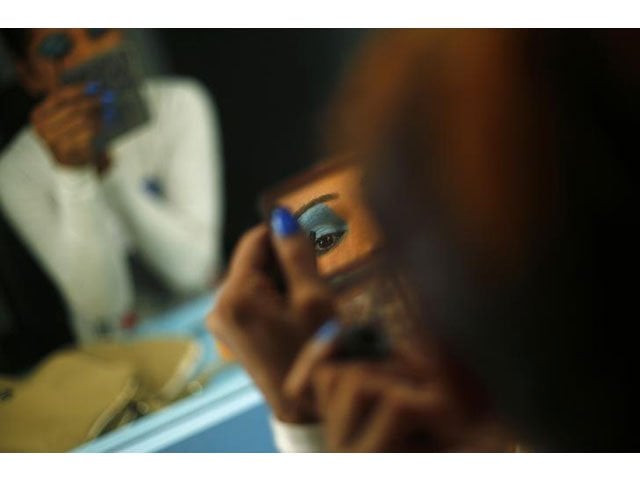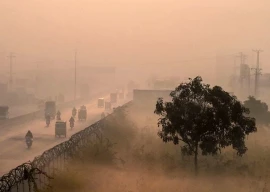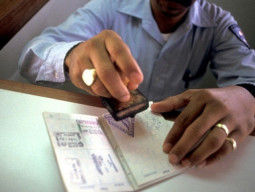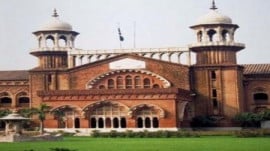
Punjab government has decided to tighten the noose around the manufacturers and sellers of substandard cosmetics and skincare products. The provincial cabinet has already given a go-ahead to The Punjab Drug (Amendment) Bill 2020, which empowers authorities to impose strict penalties on businesses involved in the illegal trade.
The government has proposed penalties of up to Rs1 million for manufacturing and selling substandard, adulterated and counterfeit cosmetic products. The draft proposal made available to The Express Tribune showed that the government has proposed a fine of Rs50,000 to Rs1 million for manufacturing and trading counterfeit cosmetics.
It has proposed a fine of Rs10,000 to Rs200,000 for producing misbranded products and Rs50,000 to Rs500,000 for producing adulterated cosmetic products. A penalty of Rs10,000 to Rs500,000 is proposed for selling expired products.
To curb unethical claims and deceptive marketing practices, a penalty of Rs10,000 to Rs500,000 has been proposed for claims of cosmetics curing or mitigating any disease or ailment. The government has also proposed a fine ranging between Rs50,000 and Rs1 million for manufacturing and trading of cosmetics containing prohibited substances.
The draft also showed that the government has proposed a fine of Rs10,000 to Rs500,000 for producing cosmetics in unhygienic conditions. Sale of unlicensed and unregistered products and any other violation can be punished with a fine ranging between Rs10,000 to Rs500,000.
On the approval of the bill, Punjab Chief Minister Sardar Usman Buzdar said the government has decided to launch a crackdown against manufacturers and sellers of counterfeit and substandard cosmetics and skincare products. The provincial cabinet has approved the bill in the public interest as this unethical trade is causing a serious health hazard to consumers.
This amended bill, he underlined, would also help in ensuring the availability of original and branded cosmetic products in the market. “No shop will be allowed to sell counterfeit and substandard cosmetic products. For this purpose, it is necessary to create awareness among the masses about the safety of cosmetics,” Buzdar concluded.
Women Chamber of Commerce and Industry (WCCI) Founder President Dr Shehla Javed Akram hailed the government’s decision to curb the unethical business. She highlighted that unregistered cosmetics and skincare products manufacturer have mushroomed in every nook and corner of the country owing to the inefficient and weak regulatory regime.
A cosmetics exporter, Muhammad Tahir, disclosed that several famous Pakistani products, especially whitening creams, have been banned by health authorities in the Gulf and Arab states. “Even some famous local brands spending millions of rupees on TV commercials have been banned in export markets around the globe,” he lamented, adding that thousands of cosmetics and pharma products from India were being sold in export markets owing to their quality. Dozens of Indian companies have FDA approved plants but Pakistan has not even a single FDA approved manufacturing facility, he said.
A recently conducted study on 95,983 patients checked in the outpatient department of dermatology, King Edward Medical University, Mayo Hospital, Lahore, indicates around one-fourth of them had to repeatedly visit the hospital for a follow-up visit related to their diseases. It shows that 58% of the patients comprised females and 42% males.
The study revealed that the most common disease among the patients was eczema, followed by dermatological infections.
Published in The Express Tribune, September 22nd, 2020.

1730464111-0/raygun-(1)1730464111-0-405x300.webp)
1730967569-0/BeFunky-collage-(28)1730967569-0-165x106.webp)
1730967164-0/trump-(21)1730967164-0-165x106.webp)
1730965998-0/BeFunky-collage-(27)1730965998-0-165x106.webp)
1730965430-0/trump-(20)1730965430-0-165x106.webp)












COMMENTS
Comments are moderated and generally will be posted if they are on-topic and not abusive.
For more information, please see our Comments FAQ